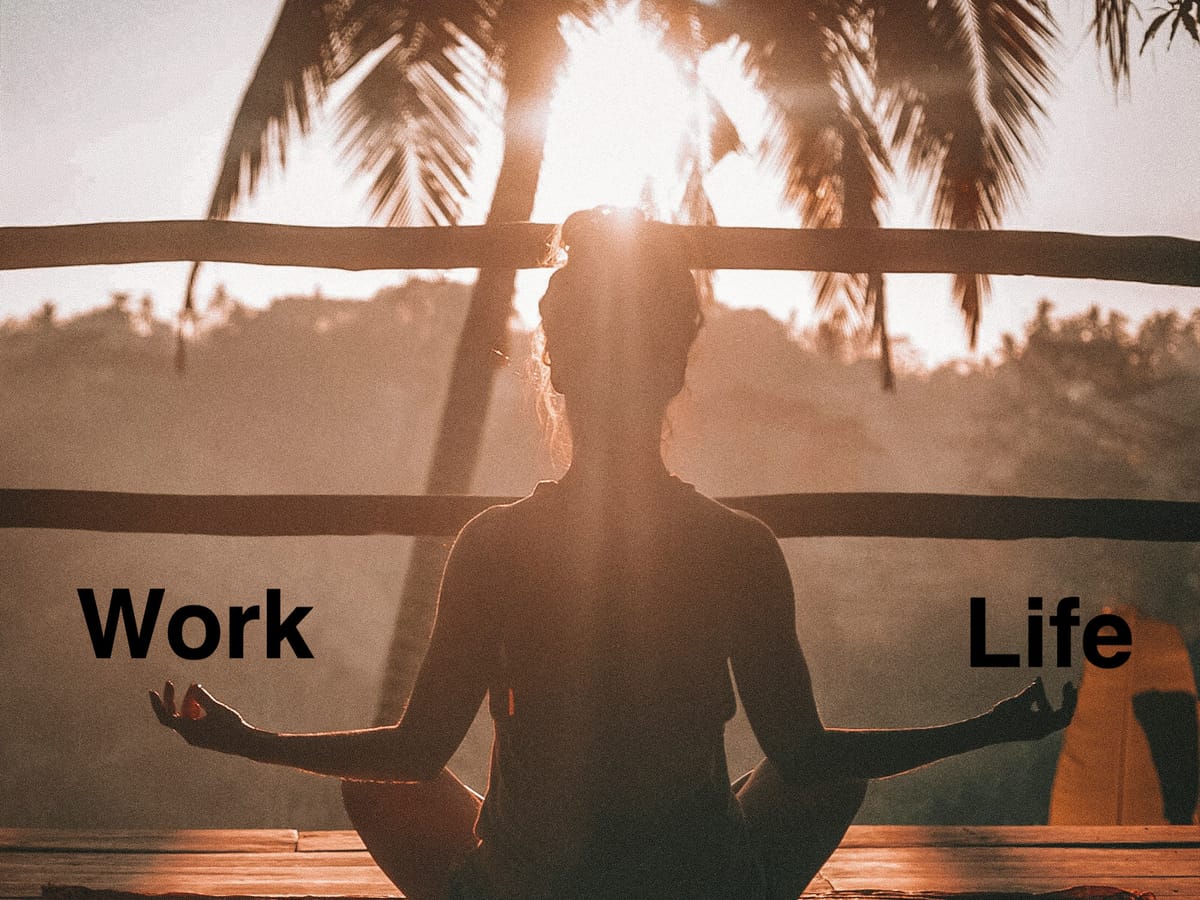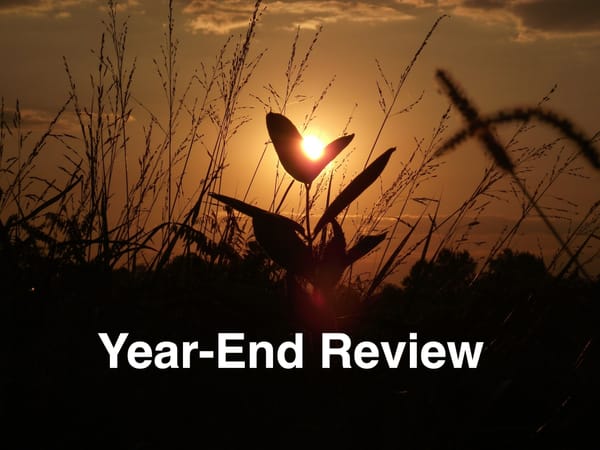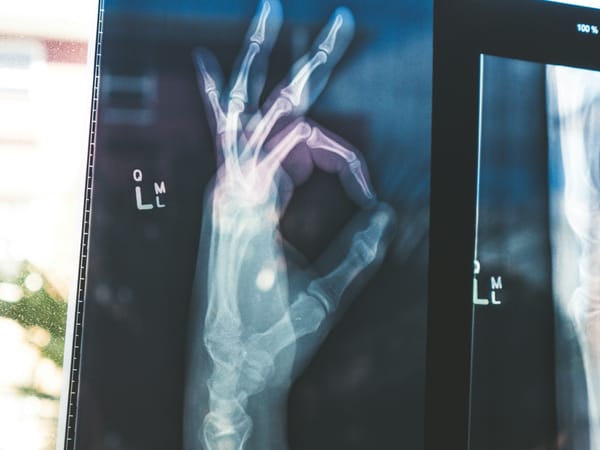How I Achieved Work Life Balance in my Clinical Research Consulting Business
An overview of how to achieve work life balance with a clinical research consulting business.

Having a clinical research consulting business can make it difficult to find work life balance.
Everything begins and ends with you. There is a lot of pressure to always be working. Always be hustling.
But there has to be more to life than just working. I see first hand people who prioritize work and miss out on things that should be more important. Like spending time with friends and family or having a unique, once in a lifetime experience.
There has to be some work, of course, otherwise life could not be funded.
So how do we find balance?
In this article I will review the strategies I have used to find work life balance in my business. I hope you find them useful to uncover your own work life balance.
Work Life Unbalance 🏢
In early 2023 I started to get serious about reducing the amount of time that I spend on work.
This isn't easy for clinical research consultants. If you are like me, you do everything. Sales, marketing, invoicing, bookkeeping, actual work solving client problems, etc.
It is hard to work less because there is so much work to do and no one to do it but us.
It is too easy to let the work side of the scale fill up without adding to the life side.
For me, I was working 60+ hours per week, including evenings and weekends. I wasn't spending enough time with family and friends.
But I did come to realize there had to be a better way.
Here are the strategies that I used.
Separate Work and Life 💼 | ⛰️
The first strategy is to try and keep work and life separate.
This can be accomplished using the following tips.
Have dedicated spaces for work 📁 and leisure ⚽
This might be hard if you work on your clinical research consulting business from home, but I encourage you to find a space where you work and only work.
On the flip side, don't work from anywhere else in the house. Only work in your dedicated space.
This should help keep work and leisure separate in your brain and help to find balance.
Schedule time for work 🕐
Without scheduled time, work time can overtake leisure and leisure time can overtake work time. Neither keeps us balanced.
I recommend to schedule work time for when your clients are working. This is usually sometime between 8am and 6pm in their timezone.
You don't have to be working this entire span (and you shouldn't work so much if you want balance), but you should have at least some work time that overlaps in case you need to schedule a meeting or have a quick phone call to discuss a project.
Also, with scheduled time, when it is time to work, then work. Don't procrastinate; stay productive. Otherwise work time might again bleed into leisure when you are rushing to meet a deadline.
Protect your leisure time 🛡️
You need to vigilantly protect your leisure time, or it will slowly evaporate.
Turn off all work related notifications on your device and don't answer email or other messages after your work hours.
We train others how they can interact with us based on our actions. For example, if you always answer email after 8pm, clients will start to expect that you answer all their emails after 8pm. If you want balance, answering email after 8pm is not going to work.
After the expectation is there, it is hard to undo. The best strategy is to set expectations that you only work and answer email during normal business hours in your own timezone.
Learn to Say No 🚫
A large part of work life balance is not over scheduling yourself.
This applies to both work and leisure commitments.
It is ok to say no to a new project, you may already have enough on your plate.
It is ok to say no to another volunteer opportunity, you may already have enough commitments.
Simplify
A great book, Slow Productivity: The Lost Art of Accomplishment Without Burnout by Cal Newport, suggests simplifying what to focus on to maintain a healthy workload.
The main idea is to engineer your work life to reduce or eliminate relatively meaningless tasks—such as back-to-back-to-back meetings—and focus on important client work.
This will help to combat getting overwhelmed, which can throw you off balance.
The author gives a few strategies to accomplish this:
- Reduce your Projects - Any project you take on will have the main work, but there is regular tasks overhead (such as email and meetings). When too many projects are happening at once, you could find yourself working only on the overhead and never getting anything done. To maintain balance, reduce the number of projects you work on at any one time.
- Schedule Projects - Figure out the number of hours and timelines for a project and put this in your calendar. That way, you have a visual reference to know if you are taking on too much work.
- Outsource - You can maintain work life balance by outsourcing some of your work to professionals and software. This includes bookkeepers, accountants, lawyers, and paid software (such as Microsoft Office, Adobe, and Endnote).
Take Care of Yourself ⚕️
If work becomes overwhelming, it can be too easy to not make ourselves a priority.
But this can lead to unhealthy habits and eventual burnout. There are five key areas of self care that shouldn't be ignored, even when times are tough.
- Exercise - Regular physical exercise can take the stress of work away and may also improve energy levels. Set aside at least 30 minutes per day.
- Food - Give your body the proper fuel to get you through the day. If you eat garbage, you will feel like garbage.
- Sleep - Forget all nighters. Adequate sleep every night is key to maintaining cognitive and physical health.
- Relationships - Don't neglect friends, family, or colleagues! Humans need to interact with other humans to be happy. You also need to interact with other people in your industry to grow your clinical research consulting business.
- Hobbies—Get a hobby! Having something to take your mind off of work will keep you balanced. Hobbies can also improve creativity and help you relax.
Summary
It is a constant struggle to maintain work life balance. The strategies above are how I achieved balance and I hope that you find them useful.
If you found this information useful, please consider sharing. If you want more of this content, please consider subscribing. If you have insights of your own please consider reaching out to me. Get in touch!




